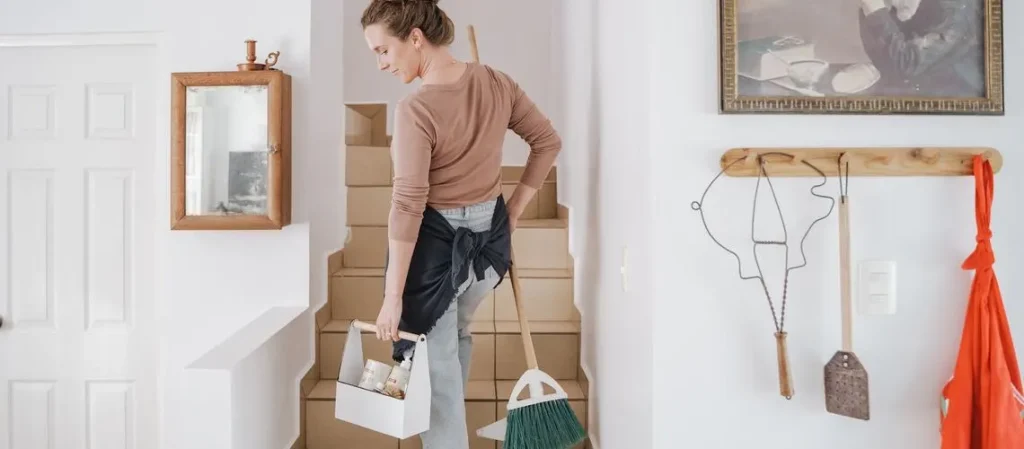accurate and reliable property valuation services
across Australia
Welcome to Very Best Property Services
Your Trusted Nationwide Property Valuation Specialists
Why Choose Very Best Property Services?
Unparalleled Expertise
Our team of highly experienced and certified valuers brings in-depth knowledge and an exceptional understanding of the Australian property landscape. They continually keep abreast of market changes and trends, to provide you with accurate and trustworthy property valuations.
Nationwide Reach
With our extensive network of valuation experts across the country, we deliver our high-quality services regardless of your location. From the bustling streets of Sydney to the serene landscapes of Tasmania, Very Best Property Services is at your service.
Exceptional Customer Service
Our commitment to superior customer service is the cornerstone of our reputation. We're here to guide you every step of the way, ensuring a seamless and stress-free property valuation experience.
Comprehensive Services
Whether you require a valuation for residential, commercial, or industrial properties, tax accounting, or legal proceedings, Very Best Property Services covers it all. We offer a comprehensive suite of services to meet your diverse needs.
Our Services

Residential Property Valuation
Our residential property valuations are thorough, meticulous, and designed to help homeowners, prospective buyers, and investors make informed decisions.

Commercial and Industrial Valuation
We provide accurate valuations for commercial and industrial properties, assisting our clients in making strategic investment decisions and capitalising on market opportunities.

Legal Valuations
From matrimonial disputes to estate settlements, we deliver comprehensive valuation reports that are recognized by courts across Australia.

Tax Valuation
Our specialists provide in-depth tax valuation services to help you navigate tax-related matters with ease, ensuring you meet your obligations while maximising your benefits.
With offices across every state and territory, we are proud to deliver our premium valuation services nationwide. Our valuers understand the intricacies of local property markets, enabling us to cater valuations specifically to each location we service.
Request a Valuation
Very Best Property Services
148 William St
Melbourne VIC 3000
Australia
Recent Articles

Understanding the Basics of Property Valuation in Australia
Property valuation is an essential aspect of the real estate market in Australia. Whether you’re buying, selling, or investing in property, understanding how property values are determined can give you a significant advantage. This article will explore the basics of property valuation, the factors that influence property values, and why a professional valuation is vital.
What is Property Valuation?
Property valuation is the process of determining the market value of a property. This value represents the amount a buyer is willing to pay and a seller is willing to accept in an open and competitive market. A professional valuer conducts the valuation, using various methods to assess the property’s worth.
Factors Influencing Property Valuation
- Location: The location of a property is one of the most significant factors in determining its value. Properties in desirable areas with access to amenities, good schools, and transport links tend to have higher valuations.
- Size and Layout: The size of the property, including the number of bedrooms and bathrooms, as well as the layout, impacts the valuation. Larger properties generally have higher values.
- Condition and Age: The condition of the property, including its age, plays a critical role in valuation. Well-maintained properties with modern features tend to have higher valuations than older, run-down properties.
- Market Conditions: The current real estate market conditions, including supply and demand, interest rates, and economic factors, also affect property valuations.
Why Property Valuation is Important
Accurate property valuation is crucial for various reasons:
- Buying or Selling: Understanding the property’s value helps buyers and sellers make informed decisions.
- Investment: Investors rely on accurate valuations to assess potential returns and risks.
- Financing: Lenders require property valuations to determine the loan amount they are willing to offer.
How to Get a Professional Property Valuation
To get an accurate property valuation, it’s essential to hire a professional valuer. They have the expertise and knowledge to assess all factors influencing the property’s value. If you’re in Brisbane, you can visit Brisbane Property Valuations for reliable valuation services.
Conclusion
Understanding property valuation is vital for anyone involved in the real estate market. By knowing the factors that influence property value and why professional valuations are necessary, you can make more informed decisions when buying, selling, or investing in property.

Understanding Retrospective Property Valuation in Adelaide: Everything You Need to Know
Retrospective property valuation is an essential service for those needing an accurate assessment of a property’s value at a specific point in the past. Whether it’s for legal, financial, or personal reasons, understanding the value of your property at a historical date can provide clarity and assist in various decision-making processes. In Adelaide, this service is increasingly sought after by property owners and professionals alike.
What is Retrospective Property Valuation?
Retrospective property valuation involves determining the value of a property at a particular date in the past. This can be crucial for several reasons, including settling legal disputes, calculating capital gains tax, or managing inheritance and estate matters. Our specialists in property valuation services use historical data, market trends, and comparable sales to provide an accurate assessment of your property’s past value.
Why You Might Need a Retrospective Property Valuation
- Legal Disputes: In cases of divorce, estate settlements, or family law matters, knowing the value of a property at a specific point in time can be critical.
- Taxation Purposes: Calculating capital gains tax requires an accurate historical valuation to determine the property’s value when it was acquired versus when it was sold.
- Insurance Claims: If you need to file a claim for a past event, having a retrospective valuation can support your claim.
The Process of Retrospective Property Valuation
Our team of expert property valuers in Adelaide follows a meticulous process to ensure the accuracy of the retrospective valuation:
- Data Collection: We gather historical data, including previous sales records, market trends, and economic conditions at the time in question.
- Analysis: Using this data, we analyse the property’s condition, location, and other relevant factors that would have influenced its value.
- Comparison: We compare the property with similar properties that were sold around the same time to establish a benchmark value.
- Report Generation: A comprehensive report is generated, detailing the property’s retrospective value with supporting evidence and documentation.
Benefits of Using Professional Property Valuation Services
Engaging professional property valuers ensures you receive an unbiased and accurate valuation. Our experts have extensive knowledge of the Adelaide property market and adhere to strict industry standards, providing you with a reliable valuation that you can trust for your specific needs.
Contact Experts in Property Valuation
If you need a retrospective property valuation Adelaide, our team of specialists is here to help. We offer comprehensive property valuation services tailored to meet your requirements. Contact us today to get your property accurately valued by experts who understand the Adelaide market.

Non-Standard Home Valuations: A Comprehensive Guide
Valuing non-standard homes, including unique properties like heritage homes, acreage, and multi-unit buildings, requires a nuanced approach. These properties defy conventional valuation metrics due to their distinctive characteristics, history, or land use. This article explores the special considerations necessary for obtaining accurate valuations for such atypical properties.
Challenges in Non-Standard Home Valuation
Valuing a non-standard property is inherently complex. The uniqueness of these properties means that there are often fewer comparable sales to reference, and their special features may appeal to a niche market. Below are the key challenges faced in non-standard home valuation:
Limited Comparables
The scarcity of similar properties can make it difficult to find comparable sales data, a cornerstone of traditional valuation methods. This scarcity challenges valuers to look for alternative ways to establish a property’s value accurately.
Unique Features and Appeal
Non-standard homes often boast unique architectural features, historical significance, or extensive land, which can be highly appealing to certain buyers but not to the market at large. Valuing these features accurately requires expertise and sometimes creative thinking.
Special Considerations for Accurate Valuations
Given the complexities involved, certain special considerations must be taken into account to ensure the accurate valuation of non-standard homes:
- Understanding the Unique Appeal: A deep understanding of what makes a property unique and how that uniqueness adds value is crucial. For heritage homes, this might include architectural significance or historical importance.
- Expertise in Niche Markets: Valuers need expertise in the specific market segment of non-standard homes. This expertise helps in understanding the demand dynamics for unique features and how they influence value.
- Broad Market Analysis: A broader analysis of the market, going beyond local comparables to include regional or national trends in non-standard properties, can provide additional insights into a property’s value.
- Professional Networks: Utilising professional networks to gather insights on similar properties and their valuation outcomes can aid in making more informed decisions.
Valuation Methods for Unique Properties
For non-standard homes, relying solely on traditional valuation methods may not suffice. Here are alternative approaches to consider:
- Income Approach: Especially relevant for multi-unit properties, this method considers the potential income generation as a primary value indicator.
- Cost Approach: Useful for heritage homes, where replacement costs for unique architectural elements can inform value.
- Consultation with Specialists: Engaging specialists in heritage conservation, rural property, or other relevant fields can provide additional perspectives on value.
Maximising the Value of Non-Standard Homes
Owners of non-standard homes can take proactive steps to ensure their properties are accurately valued:
- Maintain Detailed Records: Keep comprehensive records of all renovations, restorations, and unique features of the property.
- Market Understanding: Having a grasp of how similar properties are valued and marketed can provide valuable insights when preparing for valuation.
- Professional Advice: Seeking advice from real estate professionals who specialise in non-standard properties can be invaluable.
Valuing non-standard homes requires a tailored approach that respects the unique qualities of these properties. By understanding the specific challenges and considerations involved in non-standard home valuation, owners and buyers can ensure that these unique properties are accurately valued, reflecting their true market worth. Whether it’s a sprawling acreage, a historic heritage home, or a multi-unit complex, recognising and quantifying the unique appeal of non-standard homes is key to their accurate and fair valuation.

CBD vs Suburban Commercial Property: The Difference in Value
The valuation of commercial properties varies significantly between central business districts (CBD) and suburban areas. This disparity is particularly evident in cities like Sydney, where the dynamics of location play a crucial role in determining property value. In this article, we explore the key factors influencing the value of CBD and suburban commercial properties, offering insights into their respective commercial values.
Factors Influencing CBD Commercial Property Value
High Demand and Limited Supply in CBD Areas
CBD commercial properties in Sydney and other major cities are highly sought after due to their central location and accessibility. Key factors include:
- Accessibility: Properties in the CBD are often well-connected with public transport, making them attractive to businesses.
- Prestige: A CBD address can carry significant prestige, enhancing the branding and image of businesses located there.
- Supply Constraints: Limited space in CBD areas often leads to higher property values due to the basic economic principle of supply and demand.
Impact of Infrastructure and Amenities
The presence of advanced infrastructure and a range of amenities also boosts the value of CBD commercial properties. Proximity to financial institutions, major corporations, and luxury retail outlets can significantly enhance property valuation.
Understanding Suburban Commercial Property Value
The Appeal of Suburban Commercial Spaces
Suburban commercial properties offer a different set of advantages that can be appealing to certain types of businesses and investors. These include:
- Affordability: Generally, suburban properties are more affordable than their CBD counterparts.
- Space Availability: Suburban areas often provide larger spaces, suitable for businesses needing more extensive premises.
- Community Focus: Businesses that benefit from a strong local community presence may find more value in a suburban location.
Role of Demographics and Local Economy
The demographic profile and the local economy of a suburban area can significantly influence commercial property values. Factors such as local population growth, income levels, and the presence of community amenities play a crucial role.
Comparative Analysis: CBD vs Suburban Commercial Properties
Varied Investment Opportunities
Investors often weigh the stability and prestige of CBD properties against the potential for higher growth rates in suburban areas. While CBD properties may offer more consistent rental yields, suburban properties can sometimes provide higher long-term capital growth potential.
Diverse Tenant Profiles
The tenant profile in CBD and suburban commercial properties typically varies, with CBD properties attracting larger corporations and suburban spaces appealing more to small businesses and local enterprises.
Navigating the Complexities of Commercial Property Valuation
In summary, understanding the nuances of commercial property valuation in CBD and suburban areas is crucial for investors and businesses alike. Factors such as location, infrastructure, demographics, and tenant profiles play pivotal roles in shaping the value of commercial properties in different areas. This knowledge is essential for making informed decisions in the dynamic Sydney property market.

Estimating Your Property Value Online
Why Online Valuations Are Gaining Popularity
With technology playing an increasing role in our lives, the real estate sector is not far behind. Online valuation tools make it easier than ever to get a quick estimate of your property’s value. However, understanding their limitations is key for accurate results.
Choosing the Right Property Value Calculator
Reputable Sources
Always opt for calculators from a reputable Melbourne real estate agency, financial institution, or property website.
Localised Tools
Choose an online valuation tool that takes into account local market conditions and recent sales data for the most accurate results.
How to Use Online Valuation Tools Effectively
Provide Detailed Information
The more details you can input, such as square footage, number of bedrooms, and location, the more accurate your estimate will be.
Use Multiple Tools
Don’t rely on just one property value calculator. Use multiple sources and then average the estimates for a more balanced view.
Understanding the Limitations
Generalised Algorithms
Most online tools use algorithms that may not account for the unique aspects of your property, like its condition or specific location.
Outdated Data
Some tools may use old sales data, making the estimate less reliable.
Factors That Online Tools Might Miss
- Home improvements
- Local infrastructure projects
- Current market trends
- Zoning laws
Verifying with a Professional
For a more precise valuation, it’s advisable to consult a certified property valuer who can physically inspect the property and offer a more comprehensive report.
Steps for a Comprehensive Online Valuation
- Choose multiple reputable online valuation tools.
- Input accurate and detailed information into each tool.
- Average the obtained values for a balanced estimate.
- Validate the online estimate with a professional valuation.
By understanding the pros and cons of estimating your property value online, you’ll be well-equipped to make informed decisions. Whether you’re looking to sell, refinance, or simply get a sense of your property’s worth, these tips can guide you through the process.

8 Ways to Legally Minimize Your Property Tax Burden in Australia
Paying council rates and land taxes is an unavoidable part of owning property in Australia. However, you’re not powerless when it comes to reducing your property tax burden. This article explores 8 practical methods to lighten your property tax load while remaining compliant with Australian tax law.
Understand Council Rate Valuations
Council rates are calculated based on your property’s valuation, so the first step is understanding how your council determines that rateable value. In most cases, it’s based on the unimproved land value, with improvements factored in occasionally.
Knowing this, you can take steps like appealing your property valuation to potentially have it reduced by council. Keeping an eye on any changes to the rate in the dollar set by your council can also help control your rates bill.
Claim Eligible Pensioner Discounts & Concessions
Most councils provide pensioner rate discounts to qualifying residents. The concession amount varies by state and territory but can be up to 50% off your total council rates bill.
Ensure you claim any pensioner or senior discounts you’re entitled to. Small savings add up over the year’s rates notices.
Explore Land Tax Exemptions
Australian states and territories levy land taxes annually, but various exemptions exist. For example, all jurisdictions exempt your principal place of residence from land tax.
Other common exemptions include primary production land, vacant land under a certain value threshold, and land owned by religious and charitable organizations.
Review the exemptions available in your state or territory and utilize any that fit your situation.

How to Prepare for a Property Valuation: 10 tips for Melbourne property owners
Selling or buying a property can be one of the biggest financial decisions you make. Having an accurate idea of your property’s value is crucial, whether you are looking to buy, sell, or just want to understand what your home is worth.
A property valuation provides this value estimate. It is usually carried out by a licensed professional valuer or conveyancer on behalf of the bank if you are seeking finance. However, there are things you can do to ensure the valuer has everything they need to make an informed assessment. Follow these 10 tips to get the most accurate valuation for your Melbourne property.
1. Tidy up inside and out
First impressions count. Ensure your home looks its absolute best by thoroughly cleaning inside and out before the inspection. Paint touch-ups, decluttering and staging can maximise your home’s appeal. Mow the lawn, trim bushes, clear gutters and make exterior repairs. You want the valuer to see the property at its full potential.
2. Have documents ready
The valuer will need information like original floor plans, certificates of title, council approvals, previous sales records and rents. Compile these documents beforehand so the inspection runs smoothly. Details of renovations, repairs or improvements made during your ownership are also helpful.
3. Be there on the day
It’s best to attend the inspection so you can answer any specific questions. Point out property valuation features you are particularly proud of and share insights that may be relevant like plans for neighbouring developments. Your perspective provides context beyond the visual inspection.
4. Highlight issues for transparency
Don’t hide flaws hoping the valuer won’t notice. Instead, be upfront about defects, damages or problems affecting valuation like flooding risks, noisy traffic or lingering damp. Honesty allows the valuer to factor issues into their calculations for a more accurate estimate.

A Guide to Specialist Property Valuers
Property valuations are often required for various purposes like buying, selling, financing, property settlements, property disputes, and taxation matters. While general valuers can provide standard valuations, there are situations that require the expertise of specialist valuers.
How Specialist Valuers Differ from Standard Valuers
Standard valuers focus on providing market valuations for common real estate transactions. However, specialist valuers have additional skills and experience in niche valuation areas:
Family Law Valuations
Family law valuations involve determining the value of assets for divorce settlements and property divisions. Valuers need expertise in family law regulations and sensitivity in handling emotional situations.
Litigation and Dispute Valuations
These valuations are required when property values are disputed, like inheritance disputes. Experience in court protocols is vital.
Compulsory Acquisition
For public projects needing private land acquisition, valuers must determine compensation amounts acceptable to both parties. Strong negotiation skills are required.
Contaminated Land Valuations
Valuing land with contamination issues needs understanding of remediation costs and potential legal liabilities.
Insurance Valuations
Insurers need accurate rebuilding and replacement costs for underwriting policies and assessing claims. In-depth knowledge of building codes is essential.

How to Hire the Right Commercial Property Valuer
Hiring the right commercial property valuer is crucial when you need an accurate valuation. With significant amounts of money on the line, you want someone experienced who understands your local market inside and out. Follow this guide to find the ideal valuer for your commercial property.
Ensure They Have Extensive Experience Valuing Your Property Type
The commercial property sector comprises various categories like retail, office, industrial, hospitality, healthcare, land, and more. Make sure any valuer you consider has significant expertise appraising the specific property type you need valued. For example, if you own retail space, look for valuers with ample retail valuation experience in similar markets. They will understand the nuances that affect value for that property type.
Check Their Qualifications and Licensing
Reputable commercial property valuers have qualifications from recognized industry bodies. In the United States, look for members of the Appraisal Institute with the MAI designation. In Australia, preferred qualifications include Certified Practising Valuer and Fellow of the Australian Property Institute. Licensing requirements also apply in most states, so ensure any valuer holds current licences.
Proper qualifications and licensing indicate valuers adhere to industry standards and best practices. It also shows they have the required education and experience.
Ensure They Understand the Local Area Intimately
Your valuer must exhibit deep knowledge of the local commercial property market. They should understand zoning, demographics, transportation, infrastructure, and other factors that affect value. Local knowledge enables accurate appraisals and comparisons to previous sales of similar properties.
Ideally, the valuer has completed many valuations in your metro area and specific neighbourhood. Longevity working locally demonstrates extensive market understanding.
Review Sample Valuation Reports
Ask potential valuers for sample copies of previous work valuing comparable commercial properties. Review their valuation reports to gauge the quality, accuracy, and level of detail provided. The report should clearly communicate their methodology, local market analysis, comparable sales, capitalization rates, and value conclusion. High-quality reports indicate you will receive a meticulously researched valuation.
Request References From Previous Clients
When interviewing potential valuers, ask for references from past clients. Speaking with previous clients provides insight into their appraisal process, market knowledge, professionalism, timeliness, and communication skills. Ensure the references involve valuations of similar commercial property types to your own.
By following these tips, you can identify the most qualified and experienced commercial property valuer for your needs. Taking the time to carefully evaluate valuers helps ensure you receive an accurate appraisal based on in-depth local market expertise. An accurate valuation then enables confident leasing, buying and selling decisions.

How to Prepare for a Property Valuation to Maximise Your Home’s Value
Getting a property valuation, also known as an appraisal, allows you to understand your home’s current market value. This is extremely useful information when you are looking to sell your home, refinance your mortgage, or access your home equity. A proper valuation can save or make you money.
Taking time to prepare for the property appraiser’s visit ensures your home is accurately assessed and valuated at its maximum worth. Here are some in-depth tips and tricks to prepare your home to shine and highlight all of its best features:
Do a Deep Clean from Top to Bottom
The first step is to thoroughly clean the interior and exterior of your home. You’ll want to make every room spotless and let the natural light shine in. Clean all your windows and window treatments to really make the space sparkle. Give the floors, counters, appliances and fixtures a deep scrub. Don’t forget the walls and ceilings – look for any dust or cobwebs in corners. It’s amazing what a fresh coat of paint can do as well.
Inspect the exterior just as closely. Power wash outdoor surfaces like siding, decks, patios and walkways. Clean out landscaping beds and prune overgrown trees and shrubs. Wash outdoor furniture and light fixtures. Your goal is to make your house look brand new and move-in ready.
Clear Out Clutter to Showcase Space
An appraiser needs to get a true sense of the size and flow of each room. Remove all excess furnishings and personal items like family photos, anything that distracts from the space itself. Edit closets and storage areas so contents are neatly organised. The appraiser will open cabinets, so tidy up any messy areas.
Minimal décor helps rooms appear more spacious and airy. Store away extra furniture like side tables, chairs and ottomans. Make beds and keep counters clear. A decluttered home highlights the square footage and showcases clean lines.
Make Any Minor Repairs
Inspect your home closely for required fixes and attend to them before the appraiser arrives. Small repairs make a difference in the overall presentation. Tighten loose door knobs, fix leaky faucets, replace burnt out lightbulbs, patch holes in walls. Repair squeaky cabinet doors and sticky windows. Replace cracked tiles and secure loose railings. Fresh caulk around tubs, showers and sinks keeps them looking new.
Strategically Update and Upgrade
Look at your budget to make a few smart upgrades that maximise value. Kitchen and bathroom renovations offer the highest return on investment. Upgrade cabinets, counters, sinks, faucets and lighting fixtures. New flooring goes a long way too. Swap out dated sliding glass doors for French doors. Update interior and exterior paint colours in current versatile neutrals.
Curb appeal matters as well. Pressure wash exterior surfaces and paint or stain wood trims and fences. Plant colourful flowers and add accent lighting. A new front door makes a statement too.
FAQs
What is property valuation?
Why should I get my property valued?
- To determine the current market value if you are selling your property
- To assess the worth of your property before purchasing insurance
- During divorce proceedings for asset division
- If you are investing in a property and want to determine its value
- When taking out a mortgage so the lender knows how much to lend
- To calculate capital gains tax or stamp duty when selling a property
- To ensure you are not overpaying if buying at auction
What types of valuations are there?
- Market valuation – The most likely sale price on the open market
- Insurance valuation – Values the rebuilding costs for insurance purposes
- Rental valuation – Estimates the property’s rental income potential
- Capital gains tax valuation – Values the property for capital gains tax calculations
- Stamp duty valuation – Required for stamp duty assessment when purchasing a property
How often should I get a valuation?
Most people get a valuation when they are buying or selling a property. However, you may also want to get periodic valuations every 2-3 years if you own a property. This helps you understand its changing value over time.
It’s also recommended to get a valuation after major renovations or additions, as this can significantly impact the property’s worth. A valuation may also be prudent after major economic events like recessions or booms.
Overall, regular valuations even when not buying or selling can help guide investment decisions.
What does the process involve?
- Initial consultation to understand your requirements
- External and internal inspection of the property
- Research into comparable property sales and local market conditions
- Analysis of property features like size, layout, condition etc.
- Application of valuation methods to calculate property value
- Provision of a detailed valuation report outlining important factors
- Review of draft valuation and final report delivery
How much does a property valuation cost?
Property valuation fees are charged by accredited valuers on a flat rate or hourly basis. Typical costs range from $200 – $500 for standard valuations. However, larger properties or complex valuations may cost more.
Factors impacting the valuation cost include property type, size, location, current market trends and the level of detail required in the report.
Many valuers provide quotes upfront so you know the exact fees payable. It pays to compare quotes from a few registered valuers in your area.
What questions should I ask the valuer?
- Are you a registered/licenced valuer?
- What is your experience valuing my type of property?
- What valuation methods will you use?
- Will the report outline the rationale behind the valuation figure?
- How long will the process take?
- What is included in your quote? Any exclusions?
- Do you provide periodic valuations if I don’t intend to sell soon?
What makes a good property valuer?
- Accredited qualifications and licencing demonstrating expertise
- Member of a professional valuation body
- Specialisation in residential or commercial valuations
- Local area knowledge and awareness of market conditions
- Strong analytical and report writing skills
- Ability to explain valuation details and methodology
- Extensive experience with different property types
- Professional indemnity insurance for your protection
- Excellent references from past clients

